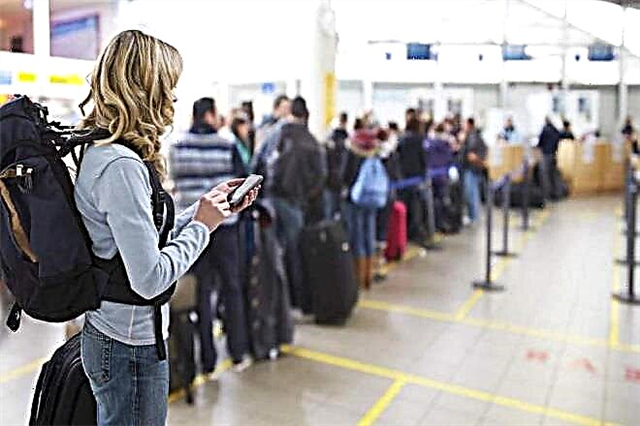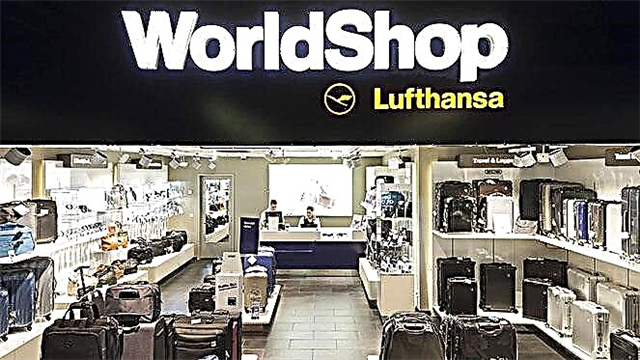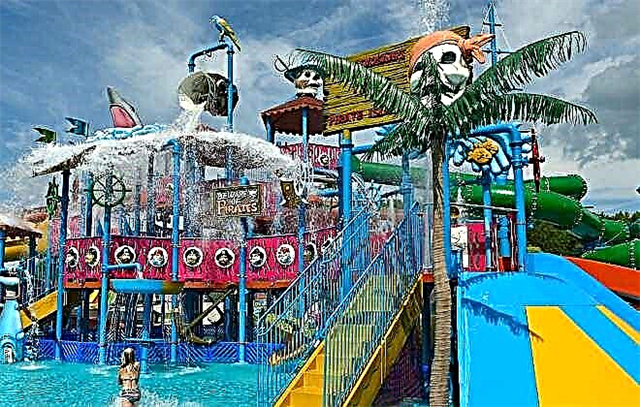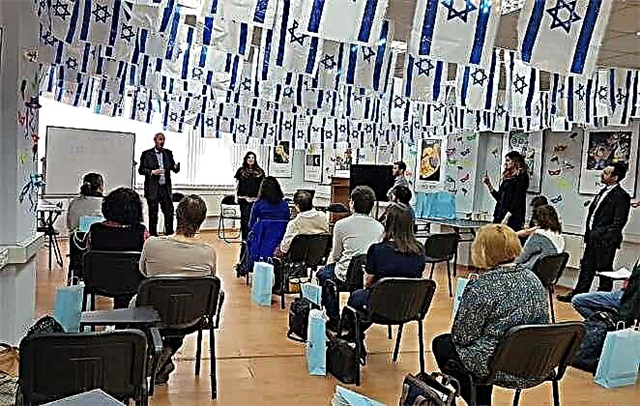Knowledge of Hebrew is an important component of integration into Israeli society and preservation of Jewish cultural heritage. Ulpan, a specialized language school, is called upon to help in the study of this rather difficult language. Both future repatriates and others wishing to master the revived language of the Jewish nation should find out what these schools are and how the educational process is organized in them.

General information
Before proceeding to consider the intricacies of the functioning of the Hebrew learning system, it is worthwhile to understand in more detail what an ulpan is. The very word in Hebrew is written אולפן and literally translates as "training", "instruction" or "studio".
The first organization with this name was created in Jerusalem in 1949, and only repatriates with a bachelor's degree, aged 21 to 35, could enter it. Education was free, while all students lived together on campus with teachers.
Since then, a huge number of other ulpans have appeared in Israel and in many other countries of the world, and not only boarding schools now operate under this name, but also day schools, language centers, courses and even circles in school rooms. These institutions differ both in the form of ownership (most of them are supervised jointly by the Ministries of Education and Integration, but there are also private ones), and in terms of the age of students (there are general schools, institutions for children, adults or pensioners).
In 2021, most of these organizations, both in the Promised Land and in other countries, provide their services on a paid basis. Moreover, each repatriate arriving in Israel receives a special voucher from the Ministry of Integration, allowing him to undergo free training in the basics of the language.
The study of Hebrew in Israel is divided into several levels, which are named after the letters "aleph-beta" - the Hebrew alphabet.
- The first level is called “Aleph” and corresponds to the A1 proficiency level. At this level, students learn to understand simple everyday dialogues and participate in them, read short texts and even write simple essays based on the material studied. From this category it is worth starting teaching people who are not familiar with Hebrew.
- The "beta" level corresponds to the A2 grade. Students who have mastered this level should have a general understanding of radio news, newspaper articles, conduct conversations on given topics and write short stories about them.
- At the “gimmel” (B1) level, there is a transition from adapted texts in “light Hebrew” to a literary language. Having a certificate at this level, for example, allows you to enter the University of Jerusalem.
- After completing training at the Dalet (B2) level, the graduate must understand any written texts in Hebrew (including academic and specialized), maintain a conversation on any topic, and also be able to express his opinion on the questions asked in writing.
- Hey (C1) is taught to understand the content of any newspaper, television, radio or text article. A student who has mastered this level must be proficient in different styles of language: colloquial, business, academic.
- The penultimate level "vav" (C2) focuses on the morphological, semantic and syntactic analysis of texts from different spheres of life.
- Finally, the last level of training is called ptor. This word translates as "liberation", and a person who has received a certificate of completion of such courses is considered to be fluent in Hebrew at the native speaker level, which opens up the opportunity for him to enter any university specialty.
Most "regular" ulpans offer services for learning one or several adjacent levels of the language. In addition to such schools, there are special institutions in Israel:
- the Ulpan Kibbutz program, which combines language practice, living and working in the kibbutz;
- summer schools for children under 12 years old, in which special attention is paid to the integration of the child into the modern culture of the country (including the study of fashion trends in music and cinema);
- schools for students;
- schools for seniors, which, unlike most other similar organizations, do not have a regulated period of study;
- “Ulpan-emsheh” for those who have completed basic courses and who want to improve their language proficiency (training is carried out in the format of an evening school);
- schools for repatriates from the Caucasus, where most of the teachers also come from those places;
- institutions with vocational guidance, in which professional vocabulary of various fields of activity is additionally studied, and upon their completion, you can get help in finding a job;
- “second attempt” schools for those who have lived in the country for more than 10 years and have difficulty communicating.
Admission and organization of the educational process
In order to receive a voucher for studying at the “alef” basic level institution, repatriates need to visit the office of the Ministry of Integration. There you can also ask what ulpans exist in your area of residence. It is impossible to enter “Alef-Ulpan” without visiting the Ministry of Integration, since it is this department that finances the network of educational institutions. It is worth noting that there are no admissions tests at schools of this level.

For admission to other types of organizations, you must first visit their official websites and check the opening hours, and then make an appointment, visit the institution in person and submit the necessary documents. Their full list differs depending on the organization, but in any case you will need:
- identity card (“teudat zeut” for citizens, “teudat ole” for migrants);
- a certificate of graduation from an educational institution of the previous level.
When preparing to apply, it is worth understanding how Hebrew is taught in Israeli ulpan.
The main feature of all these organizations, regardless of the level of training and type, is full immersion training. This means that the only language of instruction in such schools will be Hebrew and students will be encouraged to communicate with each other in Hebrew.
Much attention is paid to immersing students in the modern cultural context, therefore, adapted news and articles are used as educational texts, and materials of modern television programs are used for listening. Up to 200 academic hours are devoted to each of the levels, while in many schools groups with different schedules function in parallel.
The most common training regimen is 5 hours for 5 days a week. The duration of study is usually 6 months, after which students take an electronic or regular exam and receive a certificate of mastering the corresponding language level.
Students are provided with regular and electronic textbooks, many of which, for example, a standard alpha-level textbook, can be downloaded free of charge from the website of the Jewish Agency "Sokhnut".
It is important to remember that absenteeism is not allowed with free school attendance with a voucher. A student who missed five or more lessons without good reason loses the right to take exams.
Israeli ulpan
One of the most popular among immigrants is Ulpan Gordon in Tel Aviv, which is located at Laasal, 7. It has groups for the study of all levels of the language, from "Aleph" to "Ptor"; in addition to daytime, evening classes are also available. You can make an appointment by calling +972 - 03-522-30-95 or by writing an email to [email protected].
Special courses for retirees are available in the Sharet Ulpan, Tel Aviv, on ul. Katsenelson, 68, tel. + 972-03-659-33-16.
A popular youth ulpan in Tel Aviv with the possibility of free study under the auspices of the Jewish Agency is located on the university campus at Brodetsky 36.The course will take 5 months, and the details can be found on the project website.
Not all cities in the country can boast of such a variety. For example, in Eilat there is only a basic establishment of the “Aleph” and “Bet” levels (tel. + 972-08-637-00-77). A similar situation is in Rishon LeZion (tel. + 972-03-966-24-82). There is only one organization, namely Beiri, in Netanya (tel. + 972-09-832-19-02).
In Petah Tikva, there are daytime "Beit Bloom" (tel. + 972-03-932-05-82) and evening "Ahad a-Am" (tel. + 972-03-924-67-52) establishments.
Ulpan "Etzion" in Haifa, located on st. A-Namal, 21. The cost and conditions can be found on the website of the Jewish Agency.
If you are interested in studying in Haifa in the format of a day school, then you should try "Beit Ederstein", located on the street. Yud-Lamed Peretz, 20. Telephone for inquiries and making an appointment + 972-04-911-14-03.
If you have recently arrived in Israel and wish to acquire a language and industrial practice, it is worth using the services of ulpan in kibbutzim, which is available in Naan, Maagan Michael, Yagur, Ein Ha-Shofet (practice at a metallurgical plant), Tsuba, Sde-Eliyahu (religious kibbutz focus) and Mishmar ha-Emeke (factory "TAMA", which produces plastic products). Details of the program are available on the official website.
A huge advantage of studying in Israeli ulpan is that a certificate of completion allows you to find a job much faster.
Russian ulpans
Unlike Israel, where there are language centers of various levels and focus, in Russia the most widespread are children's schools, “Aleph” -ulpans and universal courses, in which several groups with different levels of language learning work in parallel.

For example, in Moscow at 38 Stremyanny Pereulok at the Israeli Cultural Center there is a basic ulpan “Alef”. If you wish to combine the study of Hebrew with religious practice, it is worth considering admission to the Ulpan Giyur under the Chief Rabbi of Russia at Moscow, st. Obraztsova 11. There are private Hebrew courses, for example, at the Divelang language center.
According to the residents of St. Petersburg, the best place to study Hebrew in the northern capital is the Halom ulpan, located on the territory of the Shamir Jewish school at 13. Dobrolyubov Avenue. "And more complex" gimmel "and" dalet ". Every 2 months, a set of new groups opens, in which up to 25 people study.
In total, more than 20,000 people have graduated from Halom, and almost all of them have subsequently successfully repatriated to the Promised Land. You can sign up for a group or clarify questions about the specifics of the educational process by calling +7 (981) 780-01-29 or on the official website of the organization.
There are language courses in other cities of Russia, for example, in “Hillel” (Saratov) or in the ulpan of the Tomsk community. In some regions there are courses of the agency "Sokhnut".
Conclusion
Studying in "Alef" -ulpan helps to learn the basics of Hebrew and get a certificate that makes it easier to find a job and enroll in schools with a higher level of language learning. Specialized Israeli ulpans allow you to learn the intricacies of professional vocabulary, improve your Hebrew proficiency, or even find housing and work for the first six months after repatriation.
Studying Hebrew in Russia is a good way to prepare for repatriation and immerse yourself in the Jewish cultural environment in advance.
But ulpan for children in Israel usually exists only in the format of summer camps and schools.











